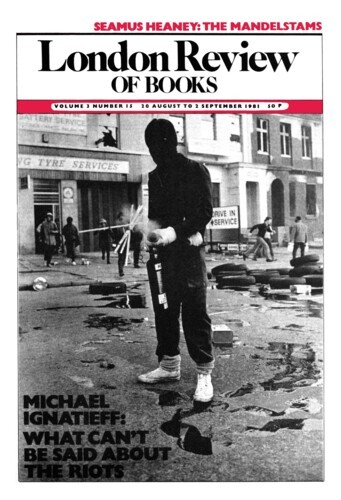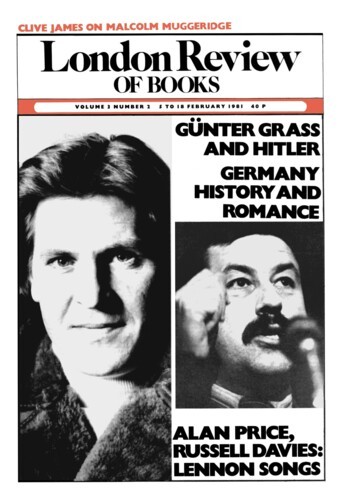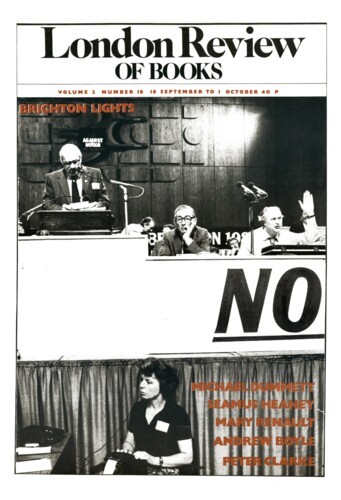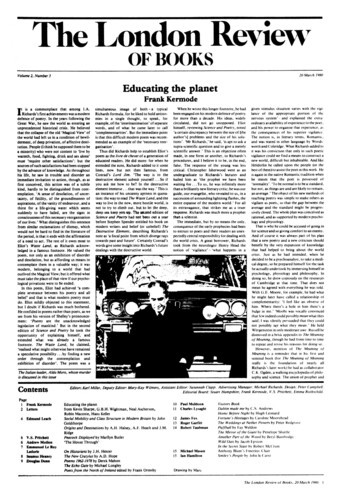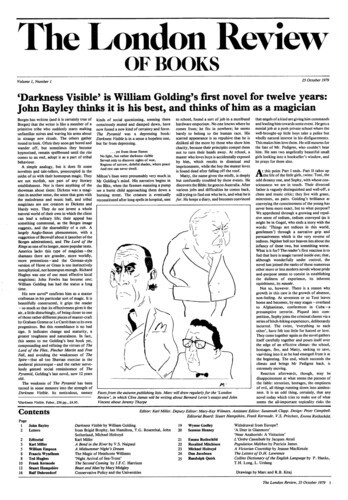Osip and Nadezhda Mandelstam
Seamus Heaney, 20 August 1981
The first sentence of Nadezhda Mandelstam’s Hope against Hope is one of the most memorable openings in all literature: ‘After slapping Alexei Tolstoi in the face, M. immediately returned to Moscow. From there he rang Akmatova every day, begging her to come.’ That was in 1934, and in his indispensable Mandelstam, Clarence Brown outlined the circumstances which led to this smack, whose sharp report not only unloosed the avalanche in which the poet Osip Mandelstam perished but also prepared the volcanic action which would begin thirty years later when his widow Nadezhda Mandelstam sat down to write her memoirs.
